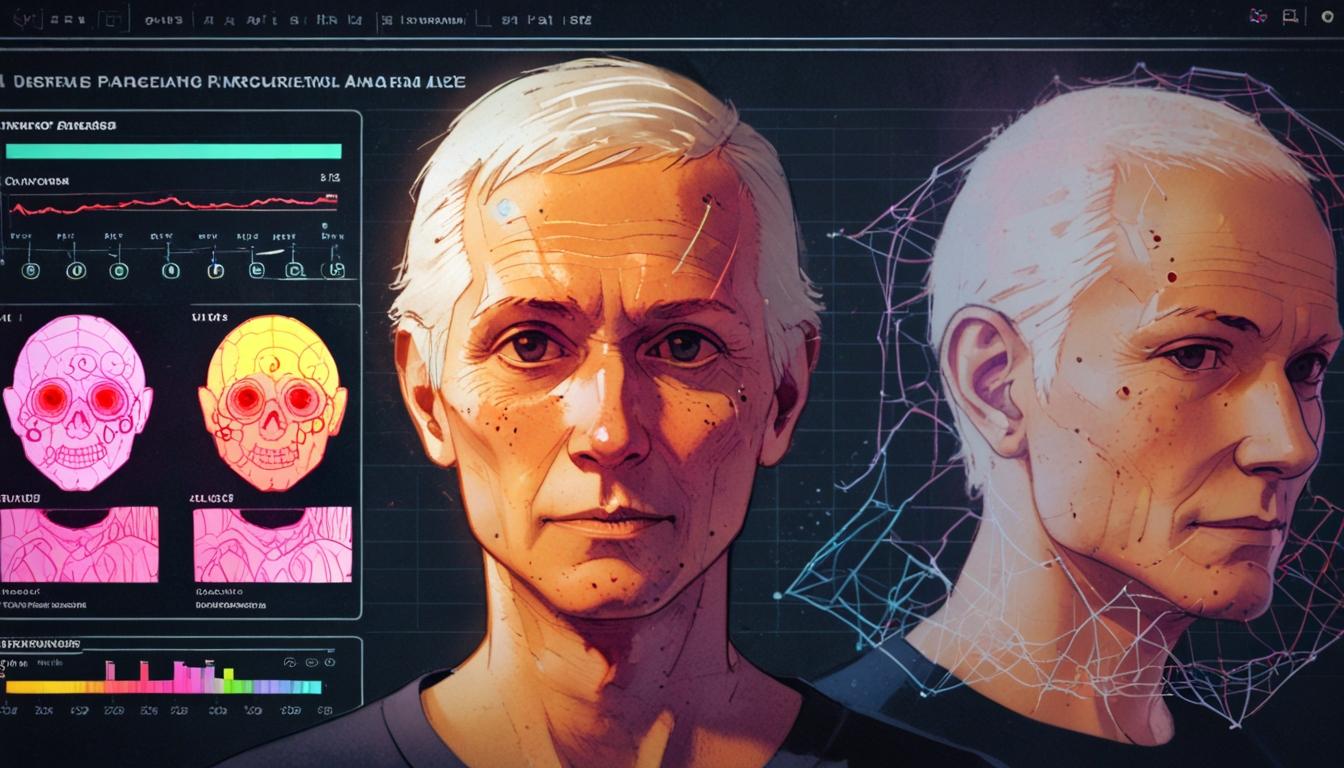AI-Powered Face Analysis: A New Tool in Cancer Prognosis
Recent advancements in artificial intelligence (AI) are making significant strides in the healthcare sector, particularly in cancer prognostication. The latest innovation, a deep learning algorithm called FaceAge, is designed to evaluate facial features of cancer patients to predict survival outcomes, often surpassing the short-term life expectancy forecasts made by clinicians. This approach exemplifies a growing trend towards using biological age indicators as critical biomarkers for predicting disease progression and therapeutic responses.
The research, published in Lancet Digital Health, employed FaceAge on a dataset comprising 58,851 photos of presumed healthy individuals. It was then applied to 6,196 cancer patients whose images were taken at the initiation of palliative radiotherapy. Disturbingly, the findings revealed that the biological or "FaceAge" of these patients appeared, on average, five years older than their chronological age. The implications of this disparity are significant: patients who visually appeared older based on their FaceAge forecasts displayed substantially poorer survival outcomes, even when adjusted for variables such as chronological age, sex, and cancer type. Notably, this effect was particularly pronounced among patients aged over 85.
Hugo Aerts, co-senior author of the study and director of AI in Medicine at Massachusetts-based Mass General Brigham, stated that the findings underscore the clinical relevance of facial analysis. "This work demonstrates that a photo like a simple selfie contains important information that could help to inform clinical decision-making and care plans for patients and clinicians." Aerts highlighted the potential for FaceAge to contribute to more tailored care strategies, noting that individuals with younger-looking FaceAges tended to respond better to cancer therapy.
Furthermore, the research assessed the efficacy of FaceAge in supporting clinicians' predictions regarding survival outcomes. When clinicians had access to both patient photos and FaceAge analyses, their accuracy in predicting six-month survival rates improved from a mere 61% to 80%. This statistically significant increase suggests that FaceAge can serve as a vital adjunct in clinical settings, aiding professionals in making more informed decisions.
Despite its promising applications, the study’s authors caution that FaceAge is not without its limitations. They highlight the potential for biases inherent in the dataset that may influence readings. Moreover, there exists a need for a more comprehensive understanding of the facial features the AI model employs in its predictions. Jaume Bacardit, an AI specialist at Newcastle University, emphasised this point, asking, "Which parts of the face are they basing their predictions on? This will help identify potential confounders that may go undetected otherwise."
The interest in biomarkers for ageing is growing, paralleling research efforts like those at Stanford Medicine, where another AI model named MUSK has been developed. This model integrates visual and textual data to provide multidimensional insights into cancer prognoses, demonstrating the expanding role of AI in enhancing cancer care through comprehensive data analysis. Additionally, Harvard Medical School has unveiled the 'Chief' model, which boasts a remarkable accuracy of up to 94% in detecting various cancer types, marking a pivotal step forward in AI-assisted medical diagnostics.
As researchers continue exploring the potential of FaceAge and similar technologies, there are broader implications for healthcare. Advances in biomarkers are signalling a shift towards precision medicine, offering insights that could refine treatment protocols and patient care. Nevertheless, ethical considerations surrounding data management and AI's expanding role remain critical for realising these promising advancements.
In conclusion, the confluence of AI and medicine presents transformative opportunities for enhancing cancer care through innovative tools like FaceAge. As researchers deepen their exploration into biological age biomarkers, the potential for improved patient outcomes could usher in a new era of personalised oncology, making significant strides in the fight against cancer.
##Reference Map:
- Paragraph 1 – [1], [6]
- Paragraph 2 – [2], [6]
- Paragraph 3 – [1], [6]
- Paragraph 4 – [1], [6]
- Paragraph 5 – [2], [3]
- Paragraph 6 – [4]
- Paragraph 7 – [5]
Source: Noah Wire Services
